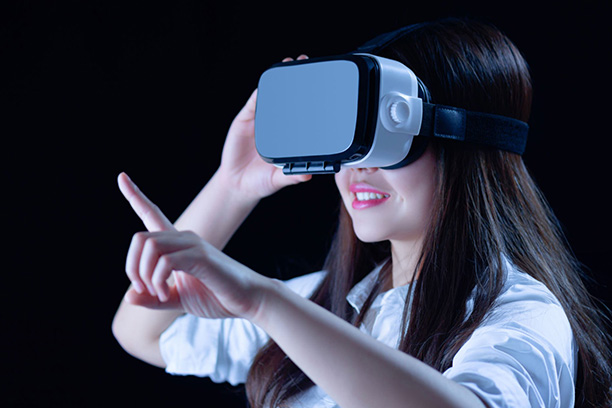AR & VR Ads: The Next Frontier in Immersive Marketing

The advertising landscape is evolving rapidly, and brands are constantly seeking innovative ways to capture consumer attention. Enter Augmented Reality (AR) and Virtual Reality (VR) ads—the next big leap in immersive marketing. These cutting-edge technologies are transforming how brands engage with audiences, offering interactive, memorable, and highly personalized experiences.
Why AR & VR Ads Are Game-Changers
- Unmatched Engagement
Traditional ads are often passive—consumers scroll past them or tune them out. But AR and VR ads demand active participation. Whether it’s trying on virtual sunglasses through an AR filter or exploring a 3D product in VR, these ads turn viewers into participants, increasing engagement and retention.
- Enhanced Personalization
AR and VR allow brands to tailor experiences in real-time. Imagine a cosmetics brand letting users virtually test makeup shades or a furniture company enabling customers to place a virtual couch in their living room before buying. These hyper-personalized interactions drive higher conversion rates.
- Emotional Storytelling
VR ads, in particular, can transport users into fully immersive brand stories. Nonprofits can take donors inside a refugee camp, travel agencies can offer virtual destination previews, and automotive brands can let users “test drive” cars from home. This deep emotional connection fosters brand loyalty.
- Social Media & Viral Potential
AR filters and effects on platforms like Instagram, Snapchat, and TikTok have already proven wildly popular. Brands that create fun, shareable AR experiences can benefit from organic virality, as users love posting their interactions online.
Real-World Examples of AR/VR Ads in Action
✅ IKEA Place App – Lets users visualize furniture in their homes using AR.
✅ Pepsi’s AR Bus Shelter – Turned a London bus stop into a thrilling AR experience with UFOs and tigers.
✅ Gucci Virtual Sneakers – Allowed users to “try on” digital sneakers in VR before purchasing.
✅ L’Oréal’s Virtual Makeup Try-On – Uses AR to let shoppers test products in real-time via their phone cameras.
The Future of AR & VR Advertising
As 5G networks expand, VR headsets become mainstream, and AR tech improves, these immersive ads will only grow more sophisticated. Expect:
🔹 AI-powered AR shopping assistants
🔹 VR-powered virtual showrooms
🔹 Interactive AR billboards in public spaces
🔹 NFT & Metaverse-integrated brand experiences
Final Thoughts
AR and VR ads are reshaping marketing by blending the digital and physical worlds. Brands that embrace these technologies early will gain a competitive edge, offering unforgettable experiences that drive engagement, loyalty, and sales.
Is your brand ready for the immersive marketing revolution? 🚀
Let's Try! Get Free Quote
Get Started Today
Want to transform your web vision into reality? Contact us today to explore your development needs. Let's create something extraordinary together.